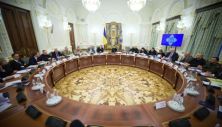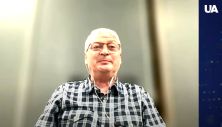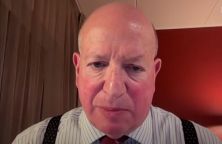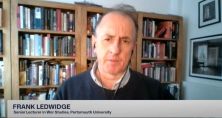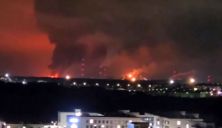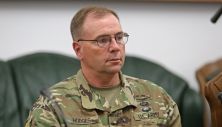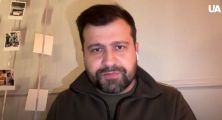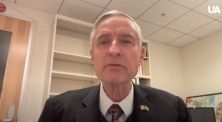The first unit of the Legion will begin training at a range in Poland by the end of the year.
The creation of the Ukrainian Legion became known in early July when President of Ukraine Volodymyr Zelenskyy, together with Polish Prime Minister Donald Tusk, signed a security agreement in Warsaw. One of its provisions includes training Ukrainian military units on Polish territory. During a press conference, Zelenskyy specified that this, in particular, involves the creation of the so-called Ukrainian Legion – a military unit composed of Ukrainian volunteers currently living abroad. A recruitment center for the Legion was opened in early October at the Ukrainian consulate general in Lublin.
Ukrinform managed to visit the center and speak with its staff about the recruitment process and when the first military unit will start training in Poland.
For security reasons (as the enemy is also highly interested in the formation of this unit), the article does not disclose the names or surnames of the recruitment center staff.
THE CENTER IS BASED IN LUBLIN BUT WILL TRAVEL TO OTHER CITIES IN POLAND
Although the recruitment center operates permanently at the Ukrainian consulate general in Lublin, representatives of the center conducted an experimental visit to Wroclaw last weekend. At the Ukrainian consulate general there, they received Ukrainians for two days who inquired about the possibility of interviews closer to their places of residence.
“We try to accommodate such requests, and if needed, we will more frequently organize such outreach receptions for Ukrainians at other Ukrainian consulates. If we understand that many Ukrainians find it more convenient to travel, say, to Gdansk, we will arrange dates and send representatives to that city,” one of the center’s leaders stated.
He clarified that currently, this only involves Ukrainian consulates in Poland (Lublin, Wroclaw, Krakow, Gdansk, and the consular section in Warsaw).
Could such recruitment centers be expanded to other European countries? The center responds that it’s too early to discuss this; the primary focus is on operations in Poland. However, this perspective is not ruled out in the future.
The center employs over ten people, including officers of the Armed Forces of Ukraine seconded from Ukraine. It operates daily from 9 a.m. to 5 p.m. local time. While the core command of the created unit will be formed in Ukraine, part of it will include current recruitment center staff who will be well-acquainted with the personnel by the time of combat coordination. The center in Lublin will function as long as the Ukrainian Ministry of Defense deems it necessary.
You can contact the Lublin center via the phone number provided on the website or by submitting an online application. A recruiter will then contact the individual. After a telephone interview, the person must come to the center in person at an agreed time for a military medical commission and direct communication, which ultimately confirms the seriousness of the candidate’s intentions for enrollment in the Legion. The final steps involve signing a contract, after which the Ukrainian citizen living abroad officially becomes a servicemember of the Ukrainian Armed Forces as part of the Legion.
The official Legion website also provides answers to common questions that Ukrainians abroad might have about joining the unit. For example, about financial compensation (up to 190,000 UAH per month for rank-and-file personnel depending on assignments in Ukraine), required documents for joining, the possibility of mobilization for those with foreign citizenship, where and how to sign a contract with the Armed Forces of Ukraine, and much more.
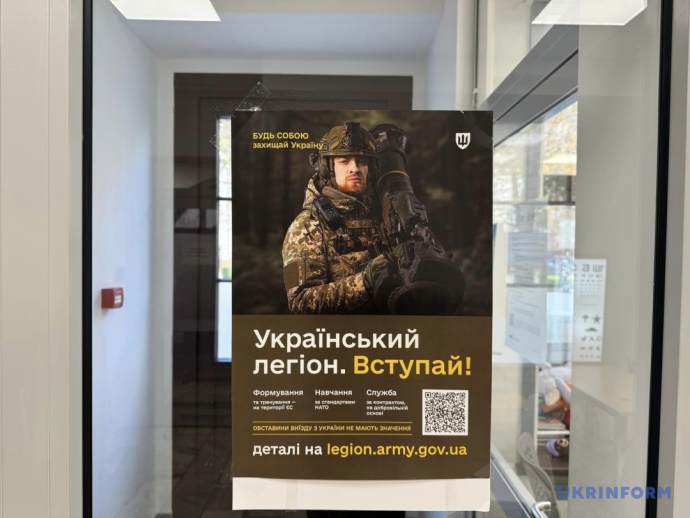
VOLUNTEERS OF THE UKRAINIAN LEGION TO BEGIN TRAINING THIS YEAR
In one month of operation, the Center has received over 500 applications from Ukrainian citizens living abroad who wish to join the Ukrainian Legion. Although not all of them will ultimately sign contracts with the Armed Forces of Ukraine (AFU), the center’s staff considers this a good result, emphasizing that this is just the beginning of their work.
“As more Ukrainians learn about its (the center’s – ed.) activities, including through media coverage, the number of applications will increase,” they point out at the center.
The first volunteers will soon, by the end of the year, sign contracts with the AFU at the recruitment center in Lublin and be sent to one of Poland’s training ranges for preparation. Contracts can be signed for a specified period (three years) or until the end of the special period.
The Polish side has long declared its readiness to immediately begin training Ukrainian volunteers and is only waiting for the formation of the first unit. Warsaw indeed has significant experience in training Ukrainian military units, as over 20,000 Ukrainian soldiers have undergone training in Poland since the start of Russia’s full-scale invasion of Ukraine. This is the highest number among all Ukraine’s allies.
It is worth noting that the training will not take place at the Lithuanian-Polish-Ukrainian Brigade (LitPolUkrBrig), as some media previously reported. Instead, NATO instructors will conduct the training at designated locations. The basic NATO-standard training course will last 35 days. After that, soldiers requiring specialized training will undergo additional preparation in other locations.
Under the bilateral agreement, Ukraine provides the Legion’s volunteers with military uniforms and medical supplies, while Poland supplies the necessary infrastructure, equipment, and weapons during training. Discussions are ongoing about whether Poland will fully equip the unit with its own technology and weaponry for deployment to Ukraine’s combat zones.
“This arrangement was initially agreed upon with the Polish side, but the final decision is still pending,” a center representative noted, adding that Ukraine is counting on Warsaw’s full support in this matter.
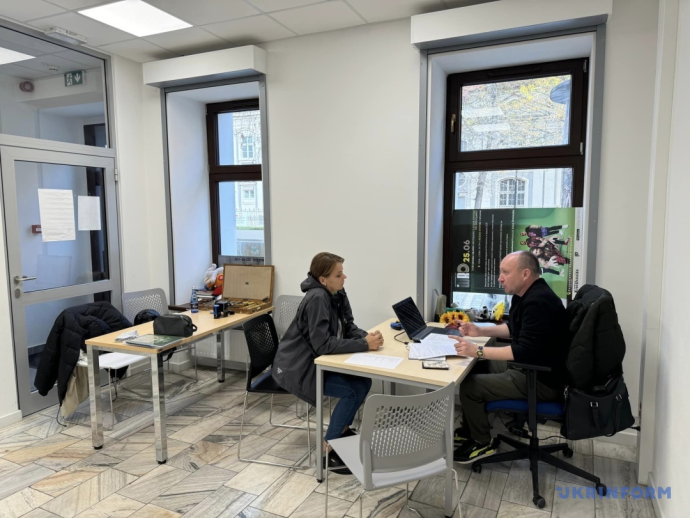
PROFILE OF A VOLUNTEER: WHO JOINS THE LEGION?
Within a month, applications were submitted by Ukrainian citizens residing in 30 countries worldwide.
“The majority of applications come from Ukrainians living in Poland and the Czech Republic, but there are also submissions from geographically distant regions like the UK, Ireland, Canada, and the US,” noted the center officer responsible for moral and psychological preparation, who directly interviews candidates for the Legion.
He stated that 90% of applications come from men, and 10% from women. As for age, about half of the applicants are under 25, while the rest are older.
“Younger individuals often express a desire to join assault units or become drone operators. Older individuals tend to prefer positions related to their civilian specialties, such as logistics,” the representative explained.
Applications come from a wide range of people, including students willing to take academic leave for military service, as well as older individuals who worked abroad as construction workers or truck drivers.
Women generally show interest in medical specialties, although some have inquired about sniper roles. “There are no restrictions on choosing a military specialization,” the center employee added.
Approximately 80% of all Ukrainians who applied to the Legion have no prior military experience or service in the AFU.
The center officer emphasized that the motivation of Ukrainians living abroad to join the Legion varies greatly.
“Each individual has their own story, their own motivations and arguments. For some, a loved one is already serving in the AFU, while others have lost a relative or close friend on the front line, and they feel it’s now their turn to defend their country. Financial factors are often not the primary motivation for joining the Legion,” he stressed.
He shared the story of a 57-year-old Ukrainian, a music teacher who had lived in Ireland for 18 years. A close relative of his was killed at the front, and he had long been helping the Ukrainian army as a volunteer.
“However, internally, this didn’t fully satisfy him. He wanted something more. When he heard President Zelenskyy’s statement about the creation of the Legion for Ukrainians living abroad, he realized that this was exactly what he needed,” said the officer.
He noted that this man had already flown from Ireland to undergo an interview and a medical examination and would soon sign a contract to serve in the Legion.
During interviews, volunteers interested in joining the Legion often have many questions. Since many of them have lived abroad with their families for a long time, an important issue is taking vacations abroad with their loved ones. They can split their vacation, and, for example, be guaranteed 15 days off twice a year (excluding travel time within Ukraine to the place of service), which they can spend with their families abroad.
“If someone’s family lives, say, in Barcelona, the person submits the appropriate request, and there will be no restrictions on traveling abroad to their relatives during the vacation period,” the representative stated.
He emphasized that volunteers joining the Legion would also have the opportunity to study for free in Ukrainian universities online. According to him, this offer was also quite attractive to some candidates for the Legion.
INTERACTION BETWEEN THE MINISTRY OF FOREIGN AFFAIRS AND THE MINISTRY OF DEFENSE OF UKRAINE
Ukrainian diplomatic and consular institutions abroad provide organizational and informational support to the Ministry of Defense of Ukraine in the operation of the recruitment center and the involvement of Ukrainians abroad in the Ukrainian Legion.
“First of all, this is informational work, secondly, providing premises for holding relevant commissions and interviews, and thirdly, assisting with document processing, if necessary, for volunteers who decide to join the Legion,” said Yuriy Tokar, the Consul General of Ukraine in Wrocław, in an interview with the agency.
He noted that many Ukrainians inquire about joining the Legion at the consulate, and consular staff then direct them to the recruitment center. The diplomat added that the consulate in Wrocław is ready to continue providing premises for the center to hold interviews and medical examinations on weekends and holidays, as this does not conflict with the hours for citizen reception at the consular office.
Oleh Kuts, the Consul General of Ukraine in Lublin, emphasized in a comment to Ukrinform that Ukrainian diplomats significantly assisted in the discussion phase and subsequent creation of the center, including providing premises for its operation.
“We spread information about service in the Legion within our consular districts. Consuls and ambassadors disseminate information about the creation of this military unit in their countries, including by engaging with the local press in the countries of accreditation,” stressed the Consul General of Ukraine in Lublin.
The most common search query related to the phrase “Ukrainian Legion” is “how to join?” The website Legion.army.gov.ua provides basic information that helps those interested in serving in the Ukrainian Legion understand how to join.
The center’s phone number is +38(093)806-20-68.
The recruitment center is located in Poland at: 2 Spokojna Street, Lublin.
